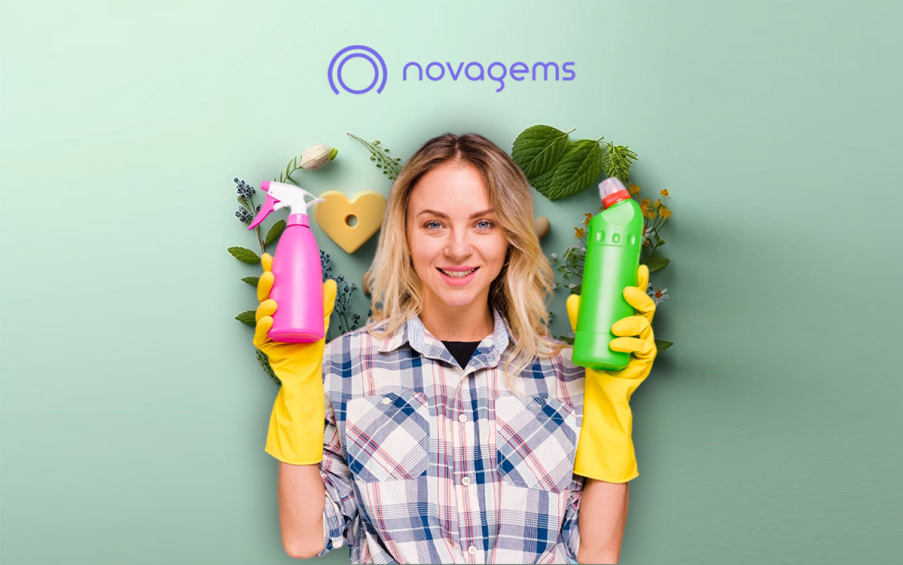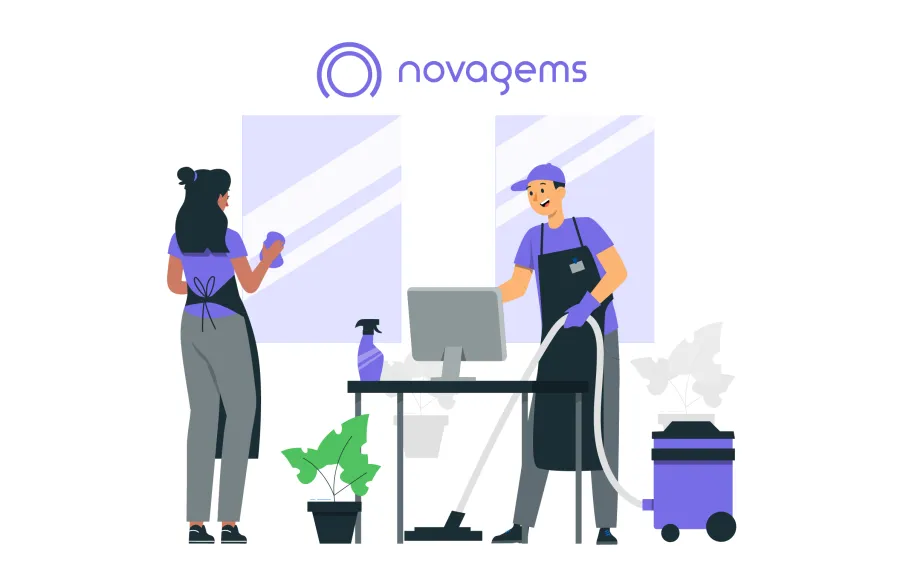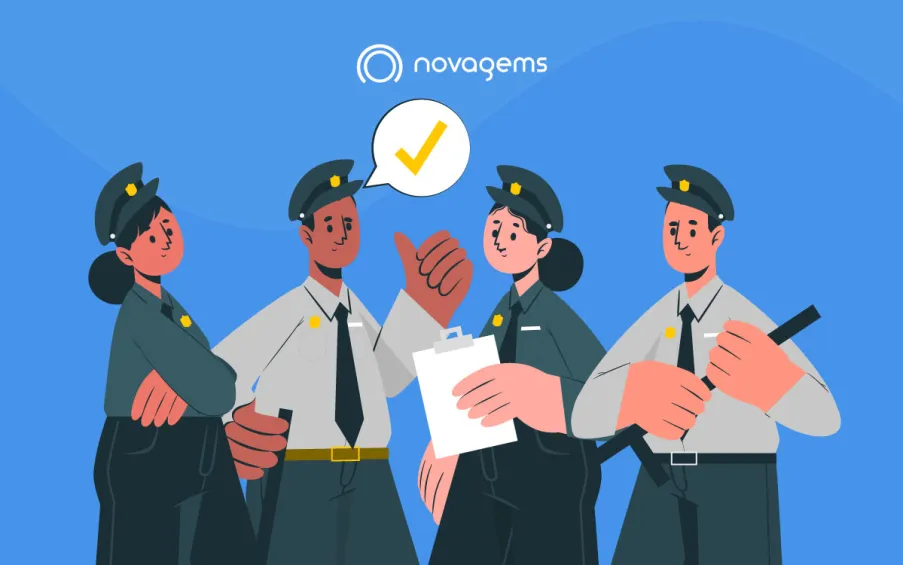Essential Health & Safety Tips For Cleaners
Tue, Jul 30, 2024
Read in 6 minutes

Cleaners play a vital role in maintaining cleanliness and hygiene in various environments. However, their job comes with several risks. Health and safety measures must be followed by every workforce. Cleaners work in some extreme conditions that can be harmful. It’s important that cleaners take care of their safety, and their client’s safety as well.
It should be noted that proper training is very important. There are some procedures and protocols cleaners need to follow if they want to do their work without any unnecessary delay. Because let’s face it, if they keep facing cleaning services challenges, they will not perform well.
This blog will provide essential health and safety tips for cleaners to help them stay safe while doing their work.
The Importance of Health and Safety in Cleaning
Health and safety are crucial for cleaners because their job involves exposure to various hazards. Both commercial cleaning services and residential cleaning services need to understand the importance. Clients are depending upon your cleaning company to provide a clean and safe environment. And it is never a good idea to break that trust if you want to build a successful cleaning business. These hazards include:
- Chemical exposure: Cleaners often use strong cleaning agents that can cause skin irritation, respiratory problems, and other health issues. When cleaners are doing their cleaning jobs they will use items to deep clean stuff. It can cause any reaction to the cleaner.
- Physical strain: Cleaning tasks like lifting heavy objects and repetitive motions can lead to injuries. They are mostly on their feet while working and hence they get tired.
- Accidents: Wet floors, cluttered spaces, and electrical equipment can cause slips, trips, and falls. Accidents are very common when it comes to cleaning services, but that does not mean one should not take the necessary steps to prevent it.
By following health and safety guidelines, cleaners can protect themselves from these risks and maintain a safer working environment. And then even grow their cleaning business.
-
Personal Protective Equipment (PPE) for Cleaners
Personal Protective Equipment (PPE) is essential for protecting cleaners from hazards. PPE includes items like gloves, masks, goggles, and aprons. Here’s how to use them correctly:
- Gloves: Always wear gloves when handling cleaning chemicals to protect your skin. Dispose of single-use gloves after each task and wash your hands before and after wearing gloves.
- Masks: Use masks to avoid inhaling harmful fumes from cleaning agents. Ensure the mask fits snugly over your nose and mouth.
- Goggles: Wear goggles to protect your eyes from splashes of cleaning solutions.
- Aprons: Aprons can protect your clothes and skin from spills and splashes.
Make sure to regularly check your PPE for any damage and replace it as needed.
-
Safe Handling and Storage of Cleaning Chemicals
Cleaning chemicals can be hazardous if not handled and stored properly. The cleaning services industry often deals with chemicals that need special care. If clients see that you have the necessary tools, it will build trust. It will also make them choose your cleaning services again. Follow these tips to stay safe:
-
Read Labels: Always read the labels on cleaning products to understand their dangers and how to use them safely.
-
Use Proper Ventilation: Ensure the area is well-ventilated when using chemicals to avoid inhaling fumes.
-
Proper Storage: Store chemicals in their original containers and keep them away from food and personal items. Make sure they are stored in a cool, dry place.
-
Follow Instructions: Follow the manufacturer’s instructions for using and disposing of chemicals. Never mix different cleaning products as this can create dangerous reactions. Commercial cleaners need to pay special attention as they might be working in sensitive areas. These areas will need special care and attention.
-
Preventing Slips, Trips, and Falls
Slips, trips, and falls are common accidents in the cleaning industry. Commercial cleaners will be able to relate to this problem as they deal with wet floors the most. Here’s how to prevent them:
-
Clean Spills Immediately: Clean up any spills as soon as they happen and use wet floor signs to warn others.
-
Keep Walkways Clear: Ensure that walkways are free of clutter, cords, and other obstacles.
-
Wear Non-Slip Shoes: Wear shoes with non-slip soles to reduce the risk of slipping on wet or oily surfaces.
-
Use Proper Lighting: Make sure all areas are well-lit so you can see and avoid hazards.
-
Dealing with Electrical Equipment Safely
Cleaners often use electrical equipment like vacuums and floor buffers. And we all know mixing water with electricity is dangerous. Follow these safety tips to avoid accidents:
-
Inspect Equipment: Check electrical cords and plugs for damage before each use. Do not use equipment with frayed cords or exposed wires.
-
Avoid Water: Keep electrical equipment away from water to prevent electric shocks. Do not touch electrical equipment with wet hands.
-
Unplug When Not in Use: Always unplug electrical equipment when not in use or when cleaning it.
-
Use Ground Fault Circuit Interrupters (GFCIs): GFCIs can prevent electrical shocks by shutting off the power if they detect a fault.
-
Fire Safety and Hazard Prevention
Fire safety is crucial in preventing accidents and ensuring a safe working environment. Here’s how to minimize fire hazards:
-
Store Flammable Materials Safely: Keep flammable materials away from heat sources and store them in appropriate containers. Commercial cleaning services are often using chemicals that can be flammable. So read the instructions properly on how to store such items.
-
Know Emergency Procedures: Familiarize yourself with the location of fire exits, fire extinguishers, and emergency meeting points. Trust me your cleaning jobs will be a lot easier. You and your cleaners will be able to work stress-free.
-
Avoid Overloading Circuits: Do not overload electrical circuits or use damaged electrical equipment.
-
Dispose of Waste Properly: Dispose of cleaning rags and other waste materials properly to prevent them from becoming fire hazards. You can dispose of those rags as they might contain the chemicals you have used earlier.
-
Training and Continuous Improvement
Regular training and staying updated on safety practices are essential for maintaining a safe working environment. Your team can focus on their cleaning jobs and provide the best cleaning services only then. Here’s how to keep improving:
-
Regular Training: Participate in regular training sessions on health and safety practices. This helps you stay updated on the latest safety guidelines and procedures.
-
Stay Informed: Keep learning about new safety methods and tools. Stay informed about any changes in safety regulations and practices.
-
Report Hazards: Report any safety hazards or incidents to your supervisor immediately. This helps prevent accidents and improve safety practices.
Conclusion
By following these essential health and safety tips, cleaners can protect themselves from various hazards and ensure a safer working environment. Prioritizing health and safety not only protects cleaners but also ensures that they can perform their duties effectively and efficiently. This way you keep your team safe and get more cleaning contracts!
Get a Free Trial
Sign up For Newsletter
Latest Blog Posts
Get Started
Start being productive & grow your business
with Novagems




